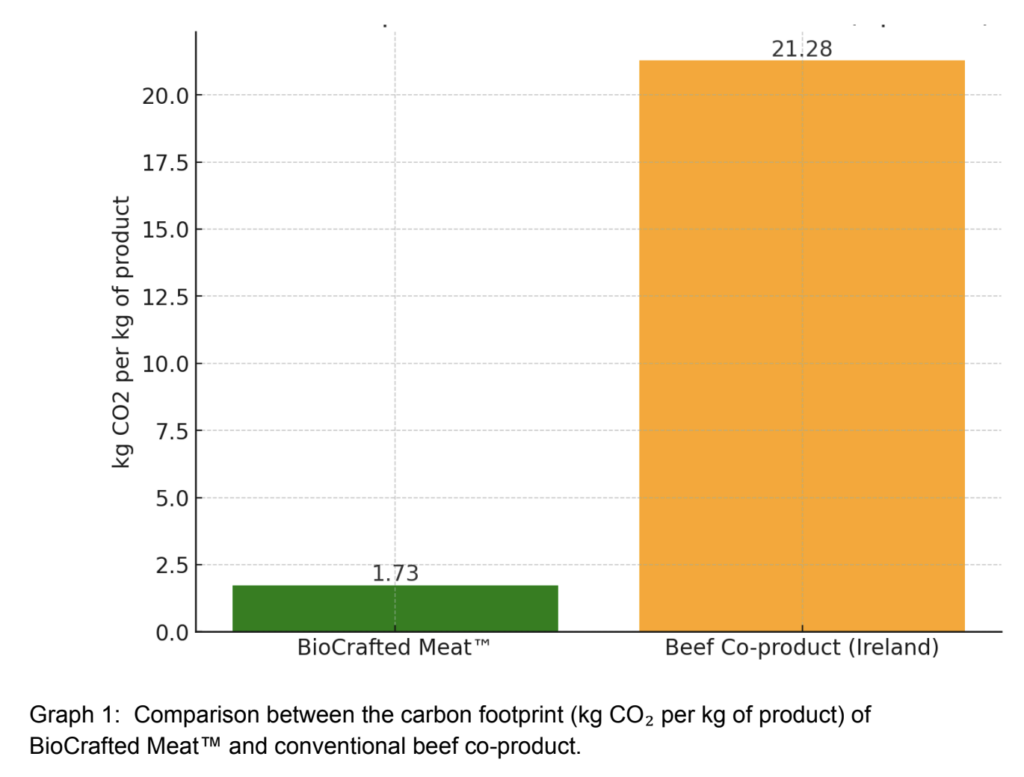
A new report argues that we need to get fossil fuels out of our food system. It doesn’t go far enough – to truly combat climate change, we must limit livestock-linked land use and support alternative proteins.
Globally, 40% of all petrochemicals are consumed by the food industry, but “we can’t tackle climate change unless we get fossil fuels out of food systems”, according to a new report by the International Panel of Experts on Sustainable Food Systems (IPES-Food).
The analysis reveals how deeply entrenched the two most environmentally harmful industries are – in fact, the food sector uses 15% of the world’s fossil fuel supply. Yet, this remains a “major blind spot” in climate policy, the organisation argues.
“Fossil-based fertilisers and plastic food packaging have become critical lifelines for oil and gas companies, offering a new way to keep fossil fuels flowing even as other sectors begin to decarbonise,” the Fuel to Fork report reads.
It calls ultra-processed foods (UPFs) the “ultimate expression of fossil-fuelled food systems”, since they’re sourced from commodity crops, produced with energy-intensive processes, and wrapped in plastic packaging.
“From farm to fork, we need bold action to redesign food and farming, and sever the ties to oil, gas, and coal,” said Molly Anderson, an IPES-Food expert. “That starts by phasing out harmful chemicals in agriculture and investing in agroecology and local food supply chains – not doubling down on corporate-led tech fixes that delay real change.”
The report calls for phasing out fossil fuels from food production, but some of its solutions feel incomplete and others downright misleading.

UPFs can benefit food security, and cultivated meat is way more climate-friendly
IPES-Food points out how a third of all petrochemicals go towards producing synthetic fertilisers, which are the biggest source of fossil fuels in agriculture. Food and drink packaging, meanwhile, accounts for at least 10% of global plastic use, and a further 3.5% is used in farming.
The report berates “industry-led solutions” like blue ammonia fertilisers and digital agriculture as costly, energy-intensive, and environmentally risky. “These technologies are controlled by a handful of powerful corporations, locking farmers into industrial monoculture systems,” it says.
While all this is true, several conclusions in the report are misleading and lacking context. For example, IPES-Food takes an axe to UPFs, calling for a tax on these products and a ban on their use in schools (as US health secretary Robert F Kennedy Jr has previously promised).
“UPFs are particularly energy-intensive, using two to 10 times more energy in their production than whole foods,” the report states, outlining that their production relies on large-scale monoculture farming, long-distance transportation, and excessive packaging.

While these foods have become public enemy number one today, they’re often misconstrued. The classification of UPFs means everything from Coke and Lay’s to pre-seasoned tofu and meat alternatives, so painting them broadly with one brush creates confusion.
It’s true that many UPFs are linked to ill health. At the same time, nutritionists point out that plenty of them aren’t bad for you. Since they’re inexpensive, they can play an important role in food security. “We absolutely need foods to be processed so that we can feed the world,” Janet Cade, a member of the British Nutrition Foundation, said in 2023.
Cultivated meat is technically a UPF, and the report suggests it’s “more than twice as energy-intensive to produce as chicken”. That may have been true… 14 years ago.
The claim is linked to a study published in 2011, two years before cultivated meat even entered the public consciousness. Production methods have changed drastically since, and more recent life-cycle assessments suggest that these proteins can actually lower emissions by 92% (or even more) compared to conventional meat.

We need to focus on ‘more food with less land’
IPES-Food also advocates for “organic, agroecological, or regenerative farming practices that avoid chemical inputs altogether”. Regenerative agriculture has become a hot topic in recent years, thanks to documentaries like Kiss the Ground and Feeding Tomorrow, and support from across the political aisle, from RFK Jr to Al Gore.
While it does have some benefits for soil and nature, many of its climate advantages have been “wildly oversold”, according to Michael Grunwald, a journalist and author of the upcoming book We Are Eating the Earth.
“It’s the ultimate silver bullet narrative: ‘Farm a little kinder, go back to the old ways, diversify crops, be nice to the soil, and all that atmospheric carbon will magically return to the earth – Kumbaya!’”, he told Green Queen in an interview this month. “Carbon farming isn’t entirely bullshit, but mostly.”
IPES-Food implored the food industry to phase out agrochemicals, rebuild local food supply chains, cut back on plastic, scale up electric cooking, and build access to healthy food. Transition to sustainable and healthy diets by reducing meat consumption and food waste is an essential pillar of “any comprehensive food system transformation”, the report said, while highlighting some nuances to the argument.

Factory farms have been found to produce less methane than pasture-fed beef, but they emit higher amounts of carbon and nitrogen and require more energy, write the authors. Pasture-raised systems, it added, “can reduce fossil fuel use, and support broader environmental and animal welfare goals”.
Environmentalists have suggested this kind of thinking is misguided at best and deceptive at worst. One recent study found that even the most efficient grass-fed operations had 10-25% higher emissions than industrially farmed beef. The bottom line is that beef consumption is not going anywhere; in fact, it is growing and will likely continue to grow as the global population increases and more people enter the middle class.
This is why, as Grunwald argues, farming systems need to focus on increasing yield and efficiency. “We need better industrial ag – not its elimination,” he said. “My North Star? High-yield agriculture. We must make more food with less land. Factories excel at mass production; factory farms are good at mass food. Sri Lanka tried ditching chemicals cold turkey – yields crashed, and the government fell. Disaster!”
Either way, with the food system accounting for a third of global emissions, reducing its impact is critical to mitigating climate change. Research suggests that even if all emissions from non-food sectors (energy and industry) are stopped, food emissions alone will surpass the 1.5°C limit.
“We need to be pragmatic and find a middle ground,” argued Grunwald. “We need higher yields, but also to make agriculture more efficient.”
The post New IPES Report Calls for Fossil Fuel Phaseout From Food Industry, Misses Key Solutions appeared first on Green Queen.
This post was originally published on Green Queen.